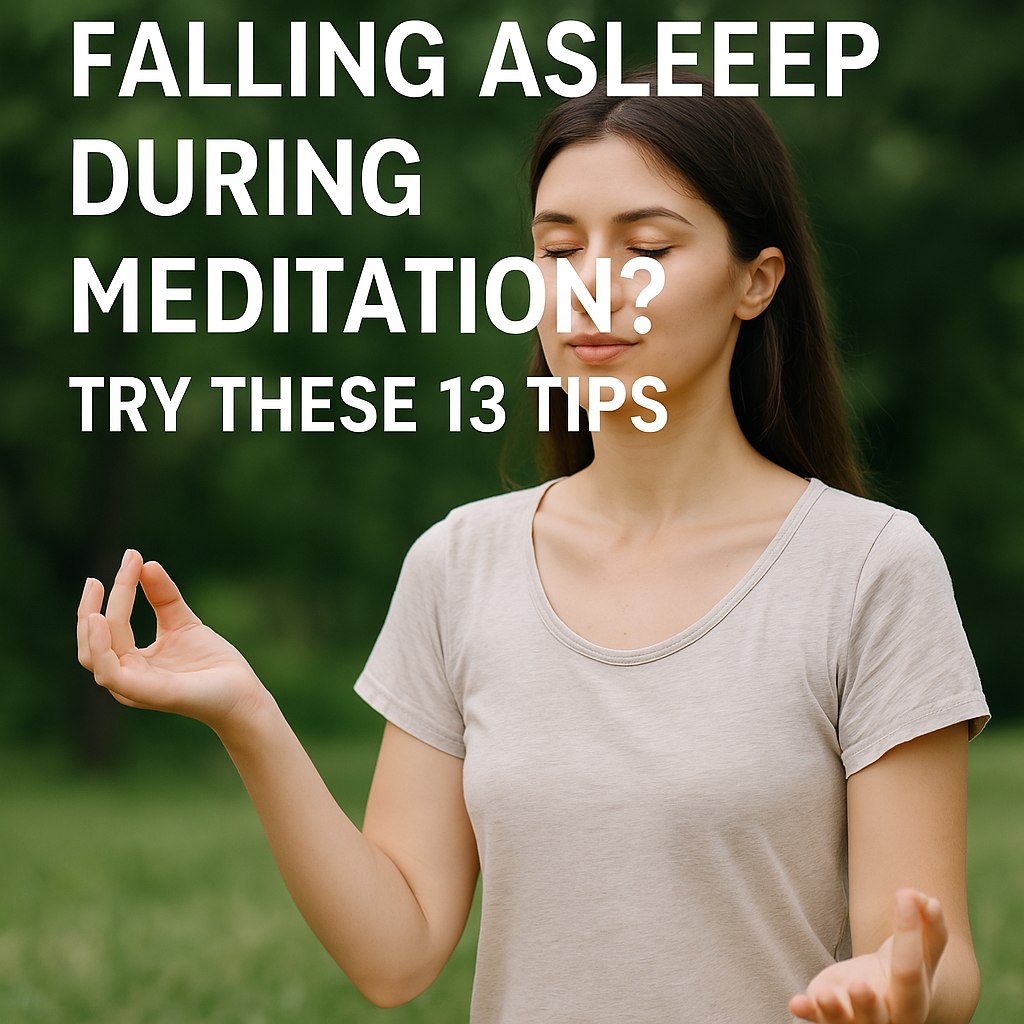Introduction:
Ever sat down to meditate only to find yourself nodding off within minutes? You’re not alone. Falling asleep during meditation is a common issue, especially for beginners or those dealing with fatigue. While meditation is meant to relax the mind and body, it can sometimes relax us a little too much—leading straight to sleep. But why does this happen, and how can you stay mindful instead of dozing off?
In this article, we’ll explore the surprising reasons behind meditation sleepiness and share 13 practical, science-backed tips to help you avoid drowsiness while meditating. Whether you’re new to the practice or looking to refine your routine, these strategies will improve your meditation focus and help you experience meditation without falling asleep.
Healthline – Why You Get Sleepy When You Meditate
Headspace – Meditating Without Falling Asleep
Why Do You Fall Asleep During Meditation?
Before we jump into solutions, it’s important to understand the root of the problem. Falling asleep during meditation can be influenced by several factors:
1. Brainwave Activity
Meditation shifts your brain into slower frequencies—like alpha and theta waves—which are similar to the early stages of sleep. This shift, while beneficial, can increase drowsiness during mindfulness sessions.
2. Sleep Deprivation
If you’re not getting enough rest at night, your body sees meditation as an opportunity to catch up. Fatigue naturally pulls you into sleep when you close your eyes and sit still.
3. Physical and Mental Exhaustion
Chronic stress, illness, or emotional fatigue can cause the body to feel drained. Meditation gives your system permission to slow down—which may lead to unintentional sleep.
13 Tips to Stay Awake During Meditation
These tips will help you maintain awareness and energy during mindfulness sessions:
1. Choose the Right Time
Avoid meditating when you’re naturally drowsy—like right after waking up or late at night. Mid-morning or early afternoon is often ideal for alertness during meditation.
2. Sit Up Straight
Good meditation posture matters. Sit with a straight spine and relaxed shoulders. A tall posture signals alertness to your brain and helps prevent slouching into sleep.
3. Don’t Meditate in Bed
Your brain associates your bed with sleep. Use a chair or meditation cushion in a dedicated space that reinforces mindful awareness.
4. Keep Your Eyes Slightly Open
Instead of closing your eyes completely, try a soft gaze with eyes half open. This technique helps maintain focus and reduces meditation sleepiness.
5. Try Walking Meditation
Not all meditation has to be seated. Walking slowly and mindfully, focusing on each step, is a great way to stay grounded and awake.
6. Use Deep Breathing Techniques
Breathing deeply into your belly not only calms your mind but also oxygenates your body—making you feel refreshed and focused.
7. Meditate Outdoors
Fresh air and natural light stimulate your senses. A quiet park or garden can enhance your alertness during meditation while offering a peaceful setting.
8. Listen to Guided Meditations
Using guided meditation for focus can keep your mind engaged. It’s harder to drift off when someone is gently guiding your attention.
9. Stretch Beforehand
A few gentle stretches before you meditate can awaken your body and reduce restlessness or fatigue during stillness.
10. Get Enough Sleep at Night
If you’re always tired, no technique will fully work. Prioritize quality sleep so your meditation sessions aren’t your body’s backup nap plan.
11. Stay Hydrated
Dehydration can make you sluggish. Drink water before your practice to stay energized and improve meditation focus.
12. Avoid Heavy Meals Before Meditating
A full stomach can lead to post-meal drowsiness. Keep your meals light if you plan to meditate shortly afterward.
13. Create a Dedicated Meditation Space
When you consistently meditate in the same place—like a corner of your room with a mat or cushion—your brain learns to associate that area with mindful energy, not sleep.
Conclusion
Falling asleep during meditation isn’t a failure—it’s feedback from your body. It may be telling you that you need rest, or that your current practice could use a few simple adjustments. By recognizing the causes and using these 13 expert-backed strategies, you can avoid drowsiness while meditating and experience the clarity that comes with true mindfulness.
Whether it’s adjusting your posture, meditating at a different time, or using a guided meditation for focus, every small step helps you stay present and alert. These meditation tips for beginners and experienced practitioners alike will help you make the most of your practice.
So take a deep breath, pick one tip to try today, and return to your cushion with energy, intention, and awareness.

